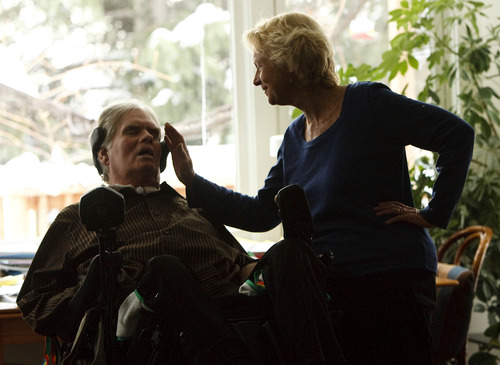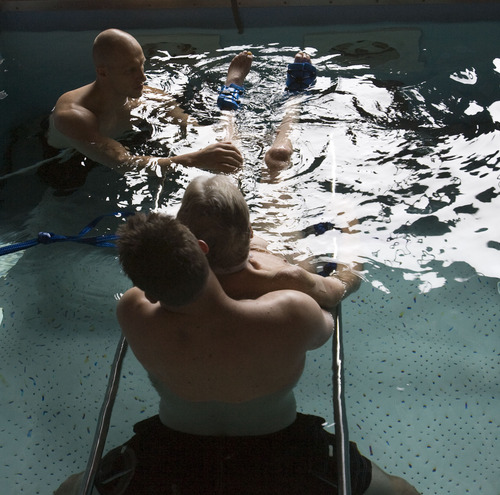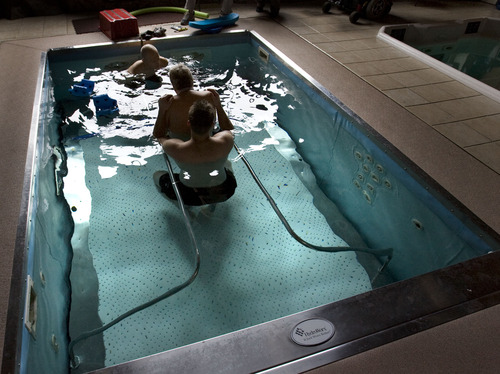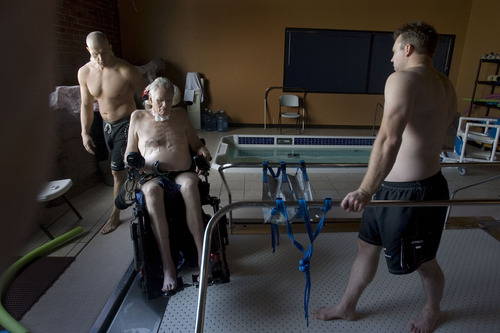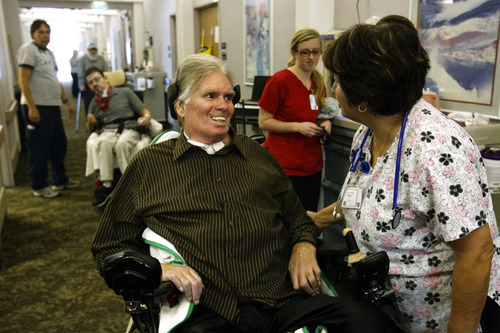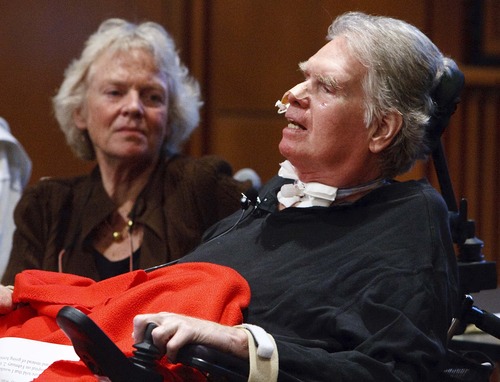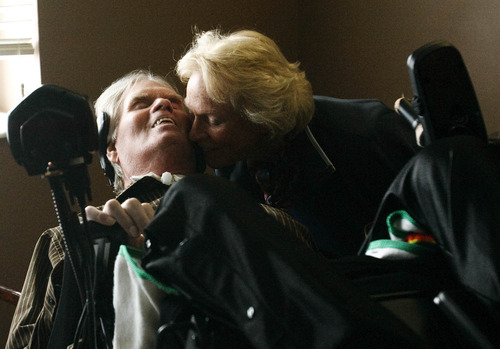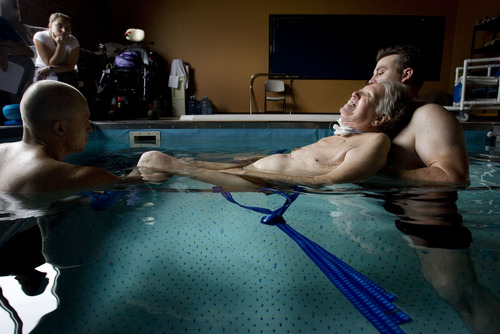This is an archived article that was published on sltrib.com in 2013, and information in the article may be outdated. It is provided only for personal research purposes and may not be reprinted.
Four and a half years after Brooke Hopkins was paralyzed in a bike accident, the well-loved and well-spoken professor passed away quietly Wednesday at his home in the Avenues.
Hopkins, 71, was — as always — surrounded by family and friends.
A handsome, lanky outdoor enthusiast, Hopkins arrived at the University of Utah from Harvard in 1975 with a background in 18th- and 19th-century British literature, especially the Romantic poetry of Byron, Keats and Shelley.
Hopkins' energetic style, knowledge of literary allusions, grasp of human emotions and command of language made him immensely popular with students and faculty. During his decades at the university, Hopkins rose to be chairman of the department and was also instrumental in the founding of the school's writing program. He made friends everywhere he went.
His future wife, Peggy Battin, arrived at the school the same year as Hopkins to teach philosophy, and before long, they were a couple. Eventually, they would marry, and Hopkins helped raise two stepchildren, Sara Battin Pearson and Michael Battin, both currently of Seattle.
When Hopkins retired in 2008, he had plans to write and travel, but the accident in November put an end to all that. It took more than two years for him to regain the ability to breathe on his own enough to return to his home. At home, it required round-the-clock care just to maintain a minimal quality of life — endless medicines, physical therapy, bathing, tubes and machines whirred all around, while Hopkins faced constant pain, infections and setbacks.
The arduous struggle for survival was sometimes unbearable, he told The Salt Lake Tribune in a series of stories about the couple, but it was also "transformative."
Though still paralyzed, Hopkins resumed teaching eager students — mostly retired educators — from an automated wheelchair in his living room. He could no longer pace in front of a blackboard, but his mind and insights into The Iliad, The Odyssey, Chaucer, The Divine Comedy, Moby Dick and Thoreau's Walden were more astute than ever.
"The real challenge for me has been in trying to expand my mind enough to comprehend my own catastrophe without letting it become that way," Hopkins wrote in December 2012 (with Battin's help) on a blog they both maintained. "I've tried to just let it be part of me, part of who I am becoming, and to always keep in mind how extraordinarily much I've gained, not just what I've lost."
The pair concluded that final blog entry with these words: "This story doesn't end, and it doesn't need to be a tragedy," they wrote together. "It's still a story of love, even if it's love under trial."
A memorial service is being planned for the fall. —
Past stories
Read more in The Salt Lake Tribune's series about Brooke Hopkins:
Learning to live again: Brooke Hopkins struggles through rehab after bicycling accident
Long-awaited homecoming for paralyzed U. professor
Utah professor's odyssey brings him home to new joys, new pain
For disabled Utah professor, there's no place like home
Learning to live again: How a new device may help Brooke breathe


